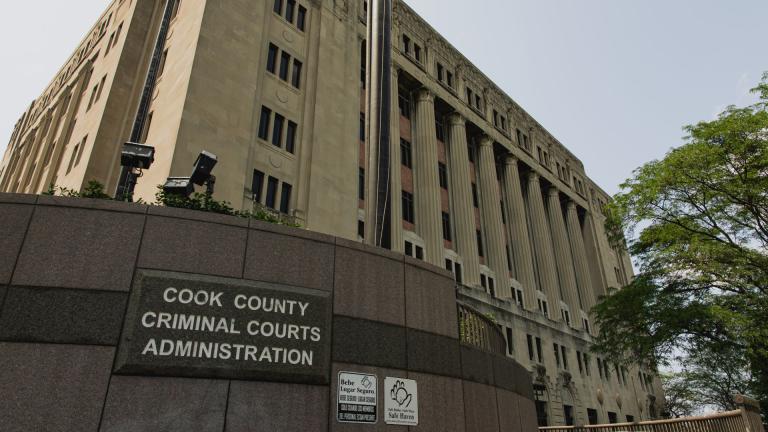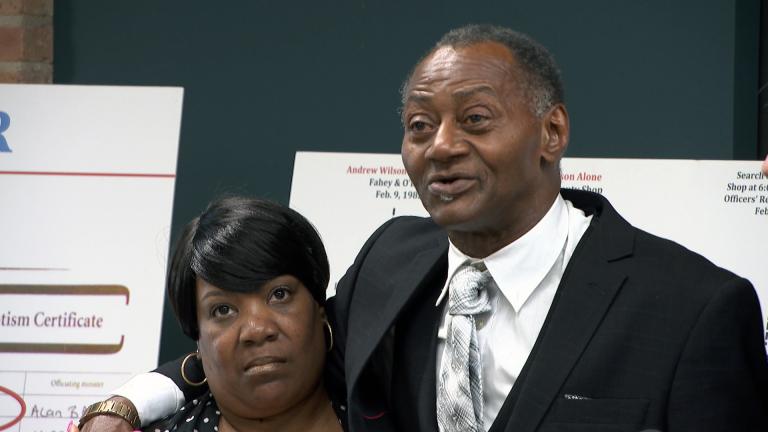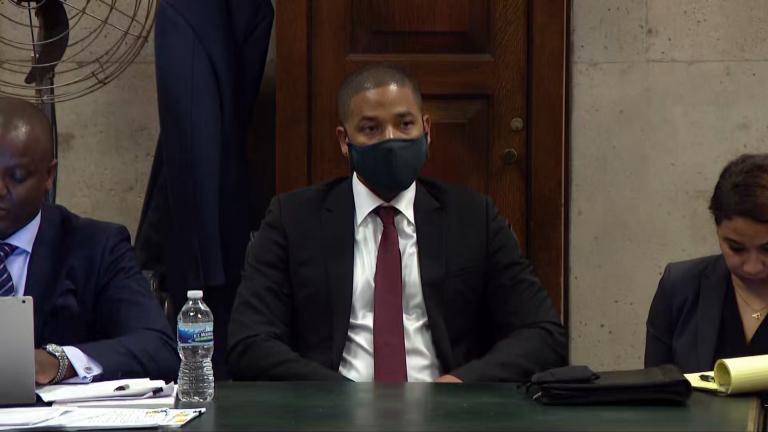The Seventh Circuit Court of Appeals on Friday rejected the R&B singer’s claim that the statute of limitations had passed and instead affirmed his convictions, stating that “(f)or years, Robert Sylvester Kelly abused underage girls.”
Criminal Justice
According to findings from the Civic Federation and the League of Women Voters of Cook County, the Pretrial Fairness Act has worked as intended during the first six months of its implementation.
Illinois’ high court has agreed to hear an appeal from Jussie Smollett, more than two years after the former “Empire” star was convicted of orchestrating an elaborate hate crime hoax.
The cost to taxpayers of the settlements approved without debate by the City Council on Wednesday is equivalent to more than a third of the city’s annual $82 million budget to cover the cost of police misconduct lawsuits.
In all, the City Council will consider paying $52.7 million to resolve four lawsuits that allege a wide range of police misconduct. The city’s insurance company is set to pay $25 million of that total.
If approved, the settlement would bring the total amount paid by Chicago taxpayers to resolve lawsuits naming former Chicago Police Detective Reynaldo Guevara to $62.5 million, records show.
The county’s Board of Commissioners on Thursday voted in favor of the deal, which comes years after Jackie Wilson was released and granted a certificate of innocence in the 1982 killings of Chicago police Officers William Fahey and Richard O’Brien.
The Cook County Board of Commissioners will vote on the proposed settlement with Jackie Wilson, who was convicted of the 1982 killings of Chicago police Officers William Fahey and Richard O’Brien, based largely on a false confession he said he gave after he was repeatedly beaten and electroshocked.
Cook County Circuit Court Clerk Iris Martinez on Thursday cut the ribbon on her office’s new Expungement Department, housed at the Leighton Criminal Court Building at 26th Street and California Avenue.
The former “Empire” star on Monday filed a petition to the state’s high court after an appellate court upheld his 2021 convictions on five counts of disorderly conduct.
The Chicago City Council voted 31-18 to resolve the lawsuit filed by the family of Darius Cole-Garrit, which claimed the officers who shot the 21-year-old threatened him hours before they nearly ran him over and then shot him in the back as he fled.
The vote on Monday by the City Council’s Finance Committee, which came over the objections of at least seven alderpeople, means the full City Council will once again consider resolving the lawsuit filed by Darius Cole-Garrit’s family.
In a 2-1 decision published Friday, the First District court rejected the actor’s claims that he had faced double jeopardy when a special prosecutor filed renewed charges against him after Cook County prosecutors dropped their initial criminal case.
Last week, the Northwestern Prison Education Program graduated its first cohort of students. The graduates are the first in the country to earn bachelor’s degrees from a top 10 university while incarcerated.
The Avondale Restorative Justice Community Court program offers those charged with nonviolent offenses a chance to turn their lives around. Rather than serving time, people are given another option.
The newly created Department of Reentry would have a budget of $5 million and four employees charged with helping formerly incarcerated individuals in Chicago get what “they need to thrive in this city,” Mayor Brandon Johnson said.











